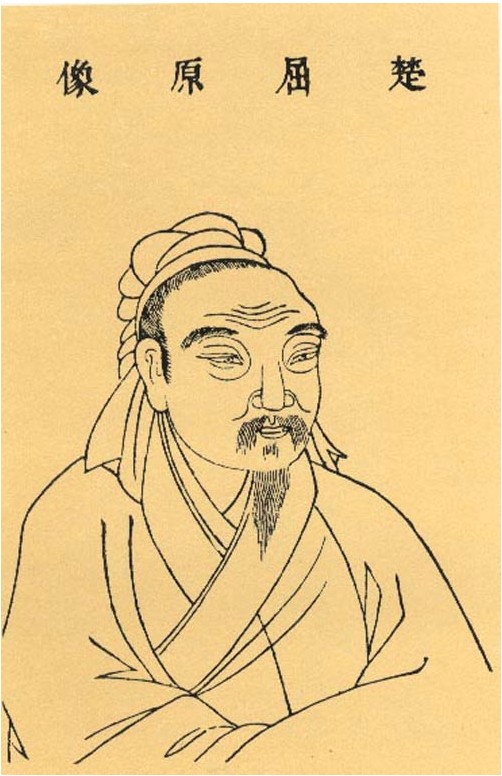|
Nine Laments
"Nine Laments" () is one of the 17 major sections of the ancient Chinese poetry collection ''Chu ci'', also known as ''The Songs of the South'' or ''The Songs of Chu''. The "Nine Laments" consists of nine verses, each with an individual name, and each with a main part, paired with a concluding "lament". The "Nine Laments" is one of the several collections of poems grouped under the title of "Nine" something-or-others, which do not necessarily consist of 9 pieces of poetry. One of the older of them, ''Jiu Ge'' ("Nine Songs") consists of 11 individual pieces: "nine" in antiquity was often used as a synonym for "many", and in the context of the ''Chu ci'' generally refers to a musical arrangement with "nine" modal changes (Hawkes 2011 985 36-37). The "Nine Laments" poems are attributed to Liu Xiang (Hawkes 2011 985 280-282). Contents ''Nine Laments'' consists of nine individual pieces. Each of these pieces consists of a main section followed by a "Lament" section: *1. 'Encountering ... [...More Info...] [...Related Items...] OR: [Wikipedia] [Google] [Baidu] |
Chu Ci
The ''Chu ci'', variously translated as ''Verses of Chu,'' ''Songs of Chu'', or ''Elegies of Chu'', is an ancient anthology of Chinese poetry including works traditionally attributed mainly to Qu Yuan and Song Yu from the Warring States period (ended 221 BC), and also a large number of works composed several centuries later, during the Han dynasty.Hawkes, David. Ch'u Tz'u: ''Songs of the South, an Ancient Chinese Anthology''. (Oxford: Clarendon Press, 1959), 28. The traditional version of the ''Chu ci'' contains 17 major sections, anthologized with its current contents by Wang Yi (librarian), Wang Yi, a 2nd-century AD librarian who served under Emperor Shun of Han. The early (pre-Qin dynasty) Classical Chinese poetry is mainly known through the two anthologies the ''Chu ci'' and the ''Shi Jing, Shi jing'' (''Classic of Poetry'' or ''Book of Songs''). Background ''Chu ci'' was named after a form of poetry that originated in the Chu (state), State of Chu, which was located i ... [...More Info...] [...Related Items...] OR: [Wikipedia] [Google] [Baidu] |
Jiu Ge
''Jiu Ge'', or ''Nine Songs'', () is an ancient set of poems. Together, these poems constitute one of the 17 sections of the poetry anthology which was published under the title of the ''Chuci'' (also known as the ''Songs of Chu'' or as the ''Songs of the South''). Despite the "''Nine", '' in the title, the number of these poetic pieces actually consists of eleven separate songs, or elegies. This set of verses seems to be part of some rituals of the Yangzi River valley area (as well as a northern tradition or traditions) involving the invocation of divine beings and seeking their blessings by means of a process of courtship. Though the poetry consists of lyrics written for a performance, the lack of indications of who is supposed to be singing at any one time or whether some of the lines represent lines for a chorus makes an accurate reconstruction impossible. Nonetheless there are internal textual clues, for example indicating the use of costumes for the performers, and an exten ... [...More Info...] [...Related Items...] OR: [Wikipedia] [Google] [Baidu] |
Liu Xiang (scholar)
Liu Xiang (77–6BCE), born Liu Gengsheng and bearing the courtesy name Zizheng, was a Chinese astronomer, historian, poet, politician, librarian, and writer of the Western Han Dynasty. Among his polymathic scholarly specialties were history, literary bibliography, and astronomy. He is particularly well known for his bibliographic work in cataloging and editing the extensive imperial library. Life Liu Gengsheng was born in Xuzhou. Being a distant relative of Liu Bang, the founder of the Han dynasty, he was thus a member of the ruling dynastic clan (the Liu family). Liu Xiang's father ranked as a marquess. Liu Xiang's son, Liu Xin, would continue the scholarly tradition of his father and his relative Liu An (the Prince of Huainan). By the beginning of Han Yuandi's reign, Liu Xiang was a member of a group of Confucian officials, including Xiao Wangzhi, who wished to limit the power of the emperor's female family members relatives' clans, the Shi and the Xu. He ended up on the ... [...More Info...] [...Related Items...] OR: [Wikipedia] [Google] [Baidu] |
List Of Chuci Contents
This is a list of the sections and individual pieces contained within the ancient poetry anthology ''Chu Ci'' (), also known as ''Songs of the South'' or ''Songs of Chu'', which is an anthology of Classical Chinese poetry verse traditionally attributed to Qu Yuan and Song Yu from the Warring States period, though about half of the poems seem to have been composed several centuries later, during the Han Dynasty.Hawkes, David. Ch'u Tz'u: ''Songs of the South, an Ancient Chinese Anthology''. (Oxford: Clarendon Press, 1959), 28. The traditional version of the ''Chu Ci'' contains 17 major sections, and was edited by Wang Yi (), a 2nd-century AD librarian who served under Emperor Shun of Han. The ''Chu Ci'' and the ''Shi Jing'' together constitute the chief sources of pre-Qin dynasty Chinese verse. "Encountering Sorrow" "Li Sao" () is one of the most famous of the works contained in the ''Chu Ci'': it mainly is upon a theme of seemingly autobiographical material about the relationship ... [...More Info...] [...Related Items...] OR: [Wikipedia] [Google] [Baidu] |

